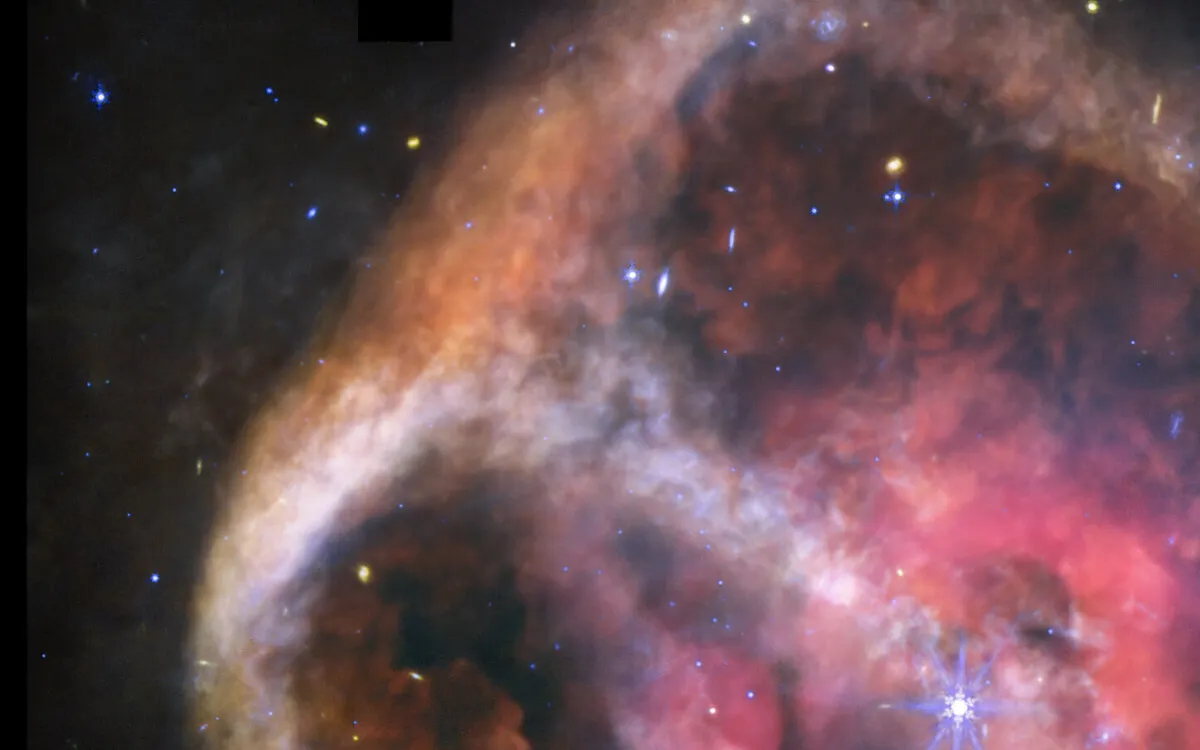
The NASA/ESA/CSA James Webb Space Telescope has achieved a remarkable milestone by capturing the most detailed image of the planetary nebula NGC 1514 to date. Utilizing its unique mid-infrared observation capabilities, Webb's latest image highlights the intricate features of this celestial object, particularly its 'fuzzy' dusty rings and the intriguing 'holes' in the central pink region where material has broken through.
This mesmerizing scene has been evolving over thousands of years and will continue to do so for millennia to come. At the heart of NGC 1514 are two central stars, which appear as a single entity in Webb’s observations. Over the course of their existence, these stars have contributed to the nebula's formation, with gas and dust ejected by a dying star becoming vividly clear through Webb's mid-infrared data.
The newly captured image reveals the nebula’s rings, previously detected only in infrared light, now appear as fuzzy clumps arranged in complex, tangled patterns. A network of clearer holes surrounding the central stars illustrates where faster material has penetrated through the nebula's structure. Although the rings around NGC 1514 were initially discovered in 2010, the James Webb Space Telescope has now enabled scientists to conduct a thorough examination of the nebula's turbulent nature.
The formation of this celestial spectacle has been ongoing for at least 4,000 years. The two stars at the center, which appear as one in Webb’s images, are equipped with brilliant diffraction spikes. These stars orbit each other in a tight, elongated nine-year cycle and are enveloped in a halo of dust depicted in vibrant orange hues.
One of the stars, once several times more massive than our Sun, played a pivotal role in creating the current structure of NGC 1514. After exhausting its outer layers, only its hot, compact core remained, transitioning into a white dwarf star. The winds from this white dwarf star have both accelerated and weakened over time, potentially sweeping up surrounding material into thin shells.
Webb’s observations reveal that the nebula is oriented at a 60-degree angle, resembling a can being poured. However, it is more plausible that NGC 1514 takes on an hourglass shape with the ends truncated. Observers can identify hints of its pinched waist in the top left and bottom right sections, where the orange dust drifts into shallow V-shapes.
During the star's peak material loss period, the companion star could have come remarkably close, leading to the formation of these unusual shapes. Instead of forming a spherical structure, this interaction likely resulted in the creation of rings. While the outline of NGC 1514 is the most distinct feature, the hourglass also possesses 'sides' that contribute to its three-dimensional appearance. Look for the dim, semi-transparent orange clouds interspersed between the rings, adding depth and dimension to this stunning nebula.